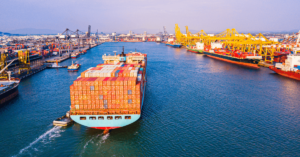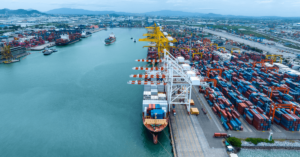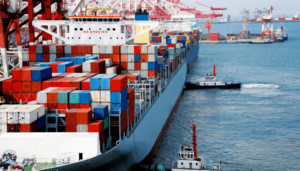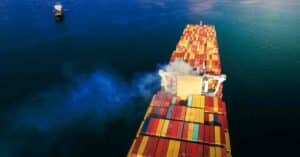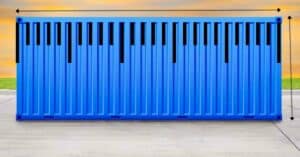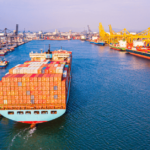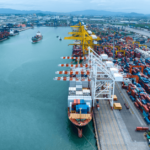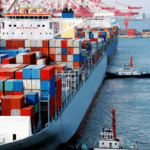What is Sustainable Logistics?
Pollution is the biggest scourge on earth. In man’s race for power, the unchecked and reckless use of natural resources has left our planet tottering on the brink of an ecological disaster.
The world has become much hotter. The air that we breathe, the food that we eat, and the water that we drink are all much more contaminated than how it was earlier, thanks to pollutants of different forms.
Vehicle and factory emissions, effluents, pesticides, chemical contaminants, mining, and industrial wastes are the major man-made pollution-causing factors.
Different types of cancers, strokes, and heart diseases are all mostly attributed to contamination. The terms ‘global warming’ and ‘greenhouse gases’ have become so cliched that it fails to evoke any useful response from governments these days. Greenhouse gases are those that trap heat within the atmosphere leading to global warming.
Sustainability is a term that often comes up in discussions on pollution and climate change.
What exactly is sustainability? It is the maintenance of an optimum ecological balance by avoiding the wasteful overuse of natural materials.
If not too late, every one of us has a responsibility in avoiding wastefulness and check the uncontrolled use and disposal of materials. Here, let us take a look at sustainability in logistics.
The other day I ordered meat through one of the leading online retailers and received an invoice by email for making payment. It came vacuum-packed in plastic sheets, inside a thicker, much larger plastic bag. This plastic bag was placed inside a paper carry bag! An A4-sized invoice was pinned onto it with the details of the invoice taking up just a quarter of the page!
In this case, I am sure that a bag or two could have been easily avoided with some proper package planning. Imagine the resources that could have been saved had even a single bag been avoided in this case? The printed invoice was also a needless waste.
Wastage not only results in adding to the world’s pollution but also increases the cost of goods.
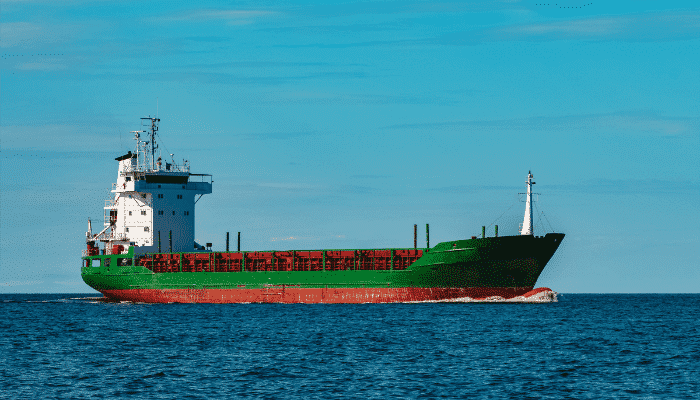
Logistics Industry and Sustainability
Packaging, packing wastes, and fuel emissions are what comes to our mind first when we refer to sustainability in logistics. Well, it is more than this. Besides these two, there is a long list of other things that contaminate and pollute the environment.
Logistics is all about the efficient movement of goods from one point to another and their redistribution or delivery to customers at a pre-agreed time.
There may be other ancillary activities too. The timing of collection and delivery of goods by a logistics service provider is crucial for its customers in meeting production and sales targets.
To meet these deadlines, logistics organizations the world over are improving and improvising on their procedures, while trying to cut costs.
The growing demand for logistics services means that logistics businesses must pull out all the stops to meet the demands and preferences of their customers. This includes, but is not limited to, storage and transport conditions, packaging, packing, labelling, and delivery times.
Warehouse Planning and Design
Planning the warehouse layout is crucial in saving costs by saving on resources. A well-planned layout ensures a smooth workflow and avoids unnecessary or repetitive actions within the warehouse.
Maximizing the storage space while being able to handle the goods efficiently using material handling equipment (MHE) will reduce costs.
A well laid out, energy and resource-saving warehouse design combined with automated warehouse solutions, and management processes is partly the answer to combating environmental pollution while ‘going green’.
Packing Materials
In warehouses, most loads are stacked on pallets for ease of storage, movement, and handling. Packing could involve the use of extra packing materials to secure the goods or maintain their quality.
Shrink-wrapped or corrugated cardboard-covered pallet loads help contain the goods on each pallet. To hold it in place, the load might be bound using polyester straps or adhesive plastic tapes. It is only to be imagined where all these plastics end up if not disposed of responsibly!
When boards, plastics, and other such packing materials are used in a warehouse, it should be ensured that they are made of recyclable or eco-friendly materials as far as possible. Such materials can be sent for recycling or reuse either directly by the customer or can be collected back by the logistics company issuing them.
Implementing an efficient system of collection of used packing materials and getting them recycled or reused, prevents these materials from finding their way to the landfill site or floating around!
Warehouse operations managers should use their judgment in deciding whether a pallet is to be plain-stacked, shrink or board wrapped, strapped, taped, etc.
Vehicle Emissions
When customers insist on preferential deliveries, most logistics companies can only comply. A majority of logistics companies use heavy-duty diesel-powered trucks for the transport of their goods. Extra deliveries mean more fuel burned and more emissions released into the atmosphere.
Traffic jams along busy roads aggravate the problem.
Vehicle emissions are mainly made up of carbon monoxide, nitrogen oxides, sulfur dioxide, hydrocarbons, and suspended particulate matter. The gases emitted by vehicles contribute to a large extent to global warming.
Studies by the US Environmental Protection Agency (EPA) estimate that the emission from a typical passenger vehicle equals 4.6 tons of carbon dioxide in a year!
Logistics companies can opt for electric vehicles (EV) or Hydrogen-powered vehicles (FCEV) for their pick-ups and deliveries. EVs are battery-powered and do not have any emissions. Hydrogen-powered vehicles also use electricity but unlike an EV, it gets electricity from both the fuel cells as well as the battery.
The FCEV generates electricity using fuel cells powered by hydrogen. Such vehicles only emit water vapour.
EV, as well as FCEV, are both extremely environment friendly.
Labelling
Sometimes, rolls and rolls of labels are printed mindlessly for affixing on boxes that already have the necessary information printed on them. Barcoding and radio frequency identification (RFID) of products reduce paper consumption. Labels, if necessary, should be of an optimal size with only the essential details printed on them.
Sensors and Monitors
The use of sensors and monitors helps to analyze and correct faults or inefficiencies in machines or even operations. Based on such reports, the usage pattern of equipment can be altered to reduce wastage or even prevent wastage completely.
Motion sensing lights using photocell sensors and auto-turn off water taps help to save electricity and water wastage to a great extent. Strategically placed skylights help to light up an area when it is bright outside. Solar panels to power the warehouse lighting and appliances help conserve electricity and bring down the electricity bill.
Water can be recycled to be used for the washing of vehicles or for watering the garden.
Greening the Surroundings
Planting of trees and plants around a warehouse periphery greens the area and helps to bring down air pollution, even if to a small extent. Besides, a green patch is always aesthetically pleasing!
Such actions of an organization, however small, matters when it comes to meeting its corporate social responsibility (CSR) commitments.
The Impact of Logistics Industry on Environment
The ‘green solutions’ of any logistics organization should include its forward as well as reverse logistics.
Logistics operations like all other businesses should consider the impact of their operations on society and the environment. Collective actions by organizations, such as those mentioned above contribute to bringing about some ecological balance in our crowded world.
You might also like to read:
- What is Volatile Organic Compound (VOC)?
- What Is Dangerous Goods Declaration in Shipping?
- What is Tanktainer in Shipping?
- What is Remotely Operated Underwater Vehicle (ROV)?
- What is Switch Bill of Lading?
Disclaimer: The authors’ views expressed in this article do not necessarily reflect the views of Marine Insight. Data and charts, if used, in the article have been sourced from available information and have not been authenticated by any statutory authority. The author and Marine Insight do not claim it to be accurate nor accept any responsibility for the same. The views constitute only the opinions and do not constitute any guidelines or recommendations on any course of action to be followed by the reader.
Do you have info to share with us ? Suggest a correction

About Author
Hari Menon is a Freelance writer with close to 20 years of professional experience in Logistics, Warehousing, Supply chain, and Contracts administration. An avid fitness freak, and bibliophile, he loves travelling too.
Latest Maritime law Articles You Would Like:
Latest News
- What is the Purpose of DG Shipping?
- What are Logistics Risks?
- How Port and Terminal Operators Can Control Emissions?
- Minimum Quantity Commitment (MQC) and Liquidated Damages in Container Shipping: Concept and Relevance
- MARPOL (The International Convention for Prevention of Marine Pollution For Ships): The Ultimate Guide
- The Ultimate Shipping Container Dimensions Guide
Subscribe To Our Newsletters
By subscribing, you agree to our Privacy Policy and may receive occasional deal communications; you can unsubscribe anytime.




